6 Iconic 1990s Movies with Unforgettable Soundtracks
The 1990s were a defining decade not only for cinema but also for music in movie. Soundtracks became cultural landmarks, often shaping how the movies were remembered and influencing entire generations of listeners. Some albums even outlived the movies themselves, becoming standalone classics. The following six movies capture that moment when music and movie fused into something bigger than both.
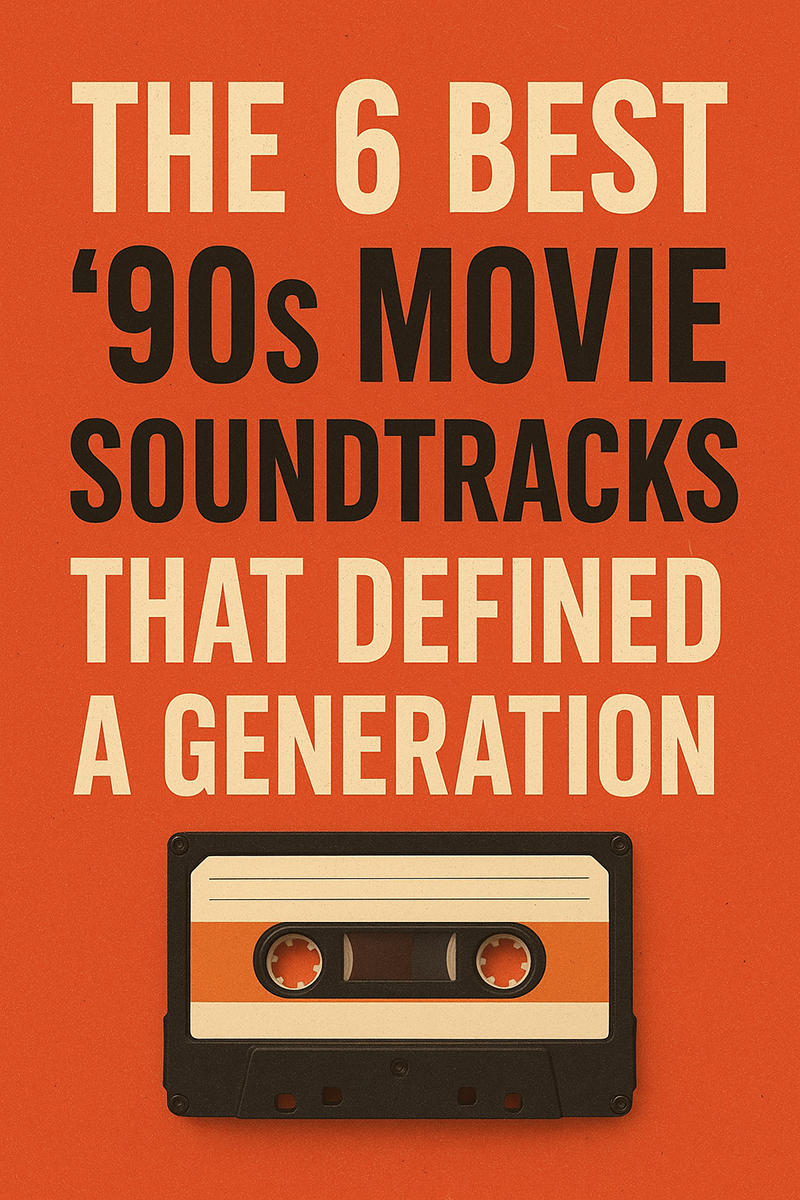
6 Iconic 1990s Movies with Unforgettable Soundtracks
The 1990s were a defining decade not only for cinema but also for music in movie. Soundtracks became
cultural landmarks, often shaping how the movies were remembered and influencing entire generations
of listeners. Some albums even outlived the movies themselves, becoming standalone classics. The
following six movies capture that moment when music and movie fused into something bigger than
both.
Singles (1992)
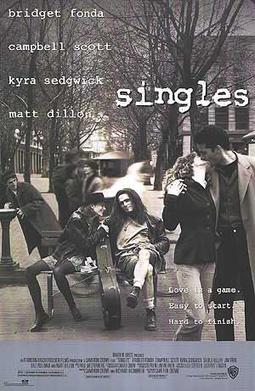
Singles
1992 / 99m
Set against the backdrop of Seattle’s grunge scene, Singles follows a group of young adults navigating
love, friendship, and ambition while living in the same apartment complex. Cameron Crowe’s movie
became a cinematic time capsule of the era, blending romance and humor with an authentic portrayal
of a generation trying to find its voice. While the movie itself received mixed reviews upon release, its
cultural significance has only grown, largely due to its soundtrack—featuring Pearl Jam, Soundgarden,
and Alice in Chains—bands that would soon define the global sound of the 90s. Crowe’s ability to
intertwine fiction with the real Seattle music community gave Singles a unique place in cinema, helping
to popularize grunge far beyond its origins.
Trainspotting (1996)

Trainspotting
1996 / 93m
Set in Edinburgh, Danny Boyle’s Trainspotting follows Renton and his circle of friends as they spiral
through addiction, friendship, and disillusionment. Based on Irvine Welsh’s novel, the movie is both
gritty and vibrant, unflinching in its portrayal of heroin culture yet full of cinematic energy. Boyle’s
kinetic direction, paired with razor-sharp editing, made Trainspotting a global phenomenon, shocking
audiences while also drawing them in with its raw humor and honesty. Its soundtrack—featuring Iggy
Pop, Underworld, Blur, and Leftfield—became legendary, defining the pulse of the movie and the youth
culture it portrayed. Opening with “Lust for Life,” it set a frantic tone that matched the chaos of the
narrative. The movie was both controversial and celebrated, sparking debate in the UK about drug
culture, while also being hailed as one of the most important British movies of its era.
Pulp Fiction (1994)
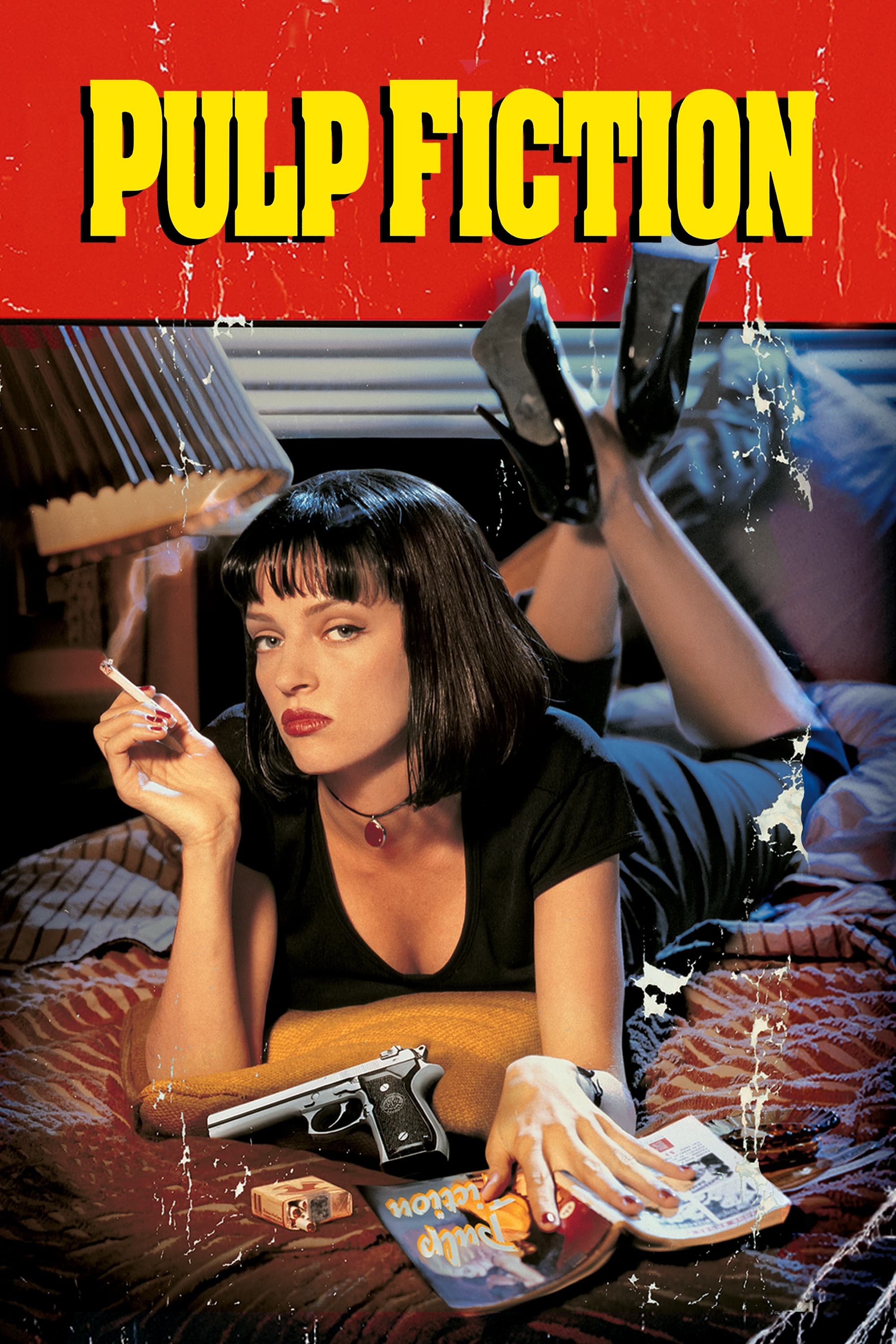
Pulp Fiction
1994 / 154m
Quentin Tarantino’s Pulp Fiction interweaves the stories of hitmen, gangsters, and unlikely characters in
a darkly comic and violent Los Angeles underworld. The movie’s nonlinear storytelling reshaped cinema,
becoming a watershed moment in independent movie and a global pop culture touchstone. Winner of
the Palme d’Or at Cannes and a massive box office success, Pulp Fiction made Tarantino a household
name and inspired a wave of movies with fragmented structures and stylized dialogue. Just as
revolutionary was its soundtrack, which redefined how music could be used in movie. With surf rock,
soul, and forgotten gems like Dick Dale’s “Misirlou” and Urge Overkill’s “Girl, You’ll Be a Woman Soon,”
the music became instantly iconic, forever linked to the movie’s unforgettable scenes. Beyond its
influence on movie, it also revived careers of overlooked musicians and turned the soundtrack album
into a cultural event in its own right.
Until the End of the World (1991)
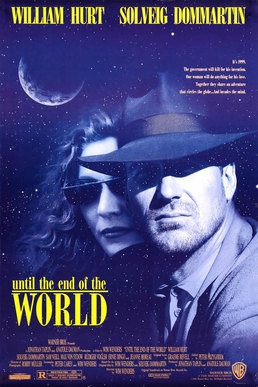
Until the End of the World
1991 / 158m
Wim Wenders’ sprawling sci-fi road movie follows a woman on a globe-spanning journey, entangled in a
quest involving a mysterious fugitive and experimental technology that records dreams. While the
movie itself struggled with commercial reception due to its ambitious five-hour runtime (later trimmed
for theaters), it has since been reappraised as one of Wenders’ most visionary works. The soundtrack,
however, was immediately hailed as a masterpiece. Wenders invited artists like U2, R.E.M., Talking
Heads, Nick Cave, and Patti Smith to imagine what their music would sound like in the future, resulting
in an unprecedented collection of original songs. This experiment not only elevated the movie’s scope
but also influenced how directors and musicians thought about collaboration. Though overshadowed by
its ambition at the time, Until the End of the World now stands as an extraordinary example of cinema’s
ability to blend speculative storytelling with groundbreaking music.
Natural Born Killers (1994)
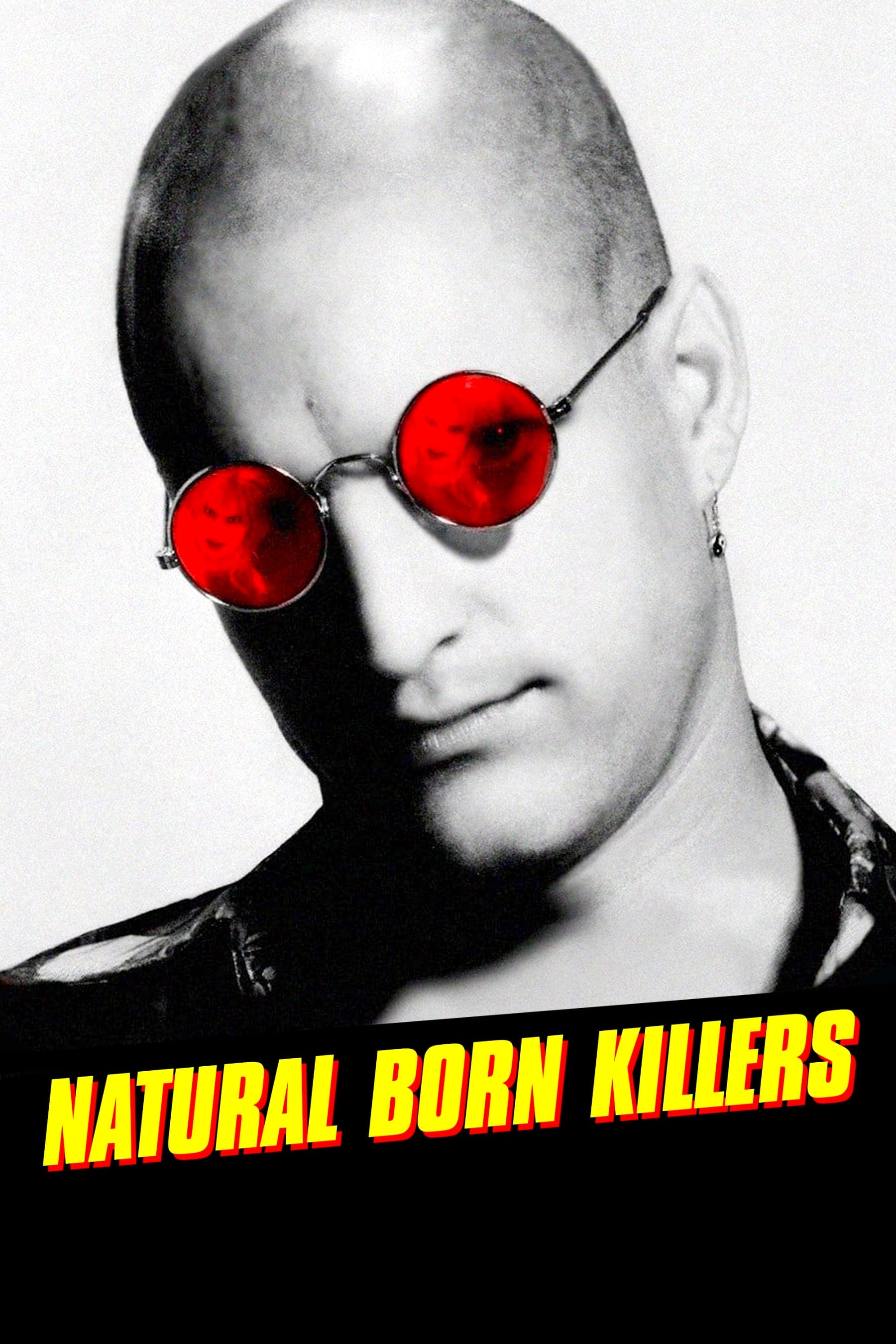
Natural Born Killers
1994 / 119m
Oliver Stone’s Natural Born Killers is a satirical and hyper-stylized road movie that follows Mickey and
Mallory Knox, a young couple whose killing spree turns them into media darlings and cultural
antiheroes. Based on an original story by Quentin Tarantino, the movie pushed boundaries with its
frenetic editing, surreal visuals, and controversial blending of violence and pop culture critique. Stone
used the movie to hold up a distorted mirror to American society, exploring the dangerous ways mass
media glamorizes crime and feeds public obsession. The soundtrack, curated by Trent Reznor of Nine
Inch Nails, became as groundbreaking as the movie itself, weaving together Leonard Cohen, Bob Dylan,
Patti Smith, Rage Against the Machine, and original score elements into a seamless audio collage.
Though divisive upon release—sparking debates about whether it critiqued or encouraged
violence—the movie became a cultural flashpoint of the 90s, remembered as one of the most daring
and provocative works of its decade.
Lock, Stock and Two Smoking Barrels (1998)
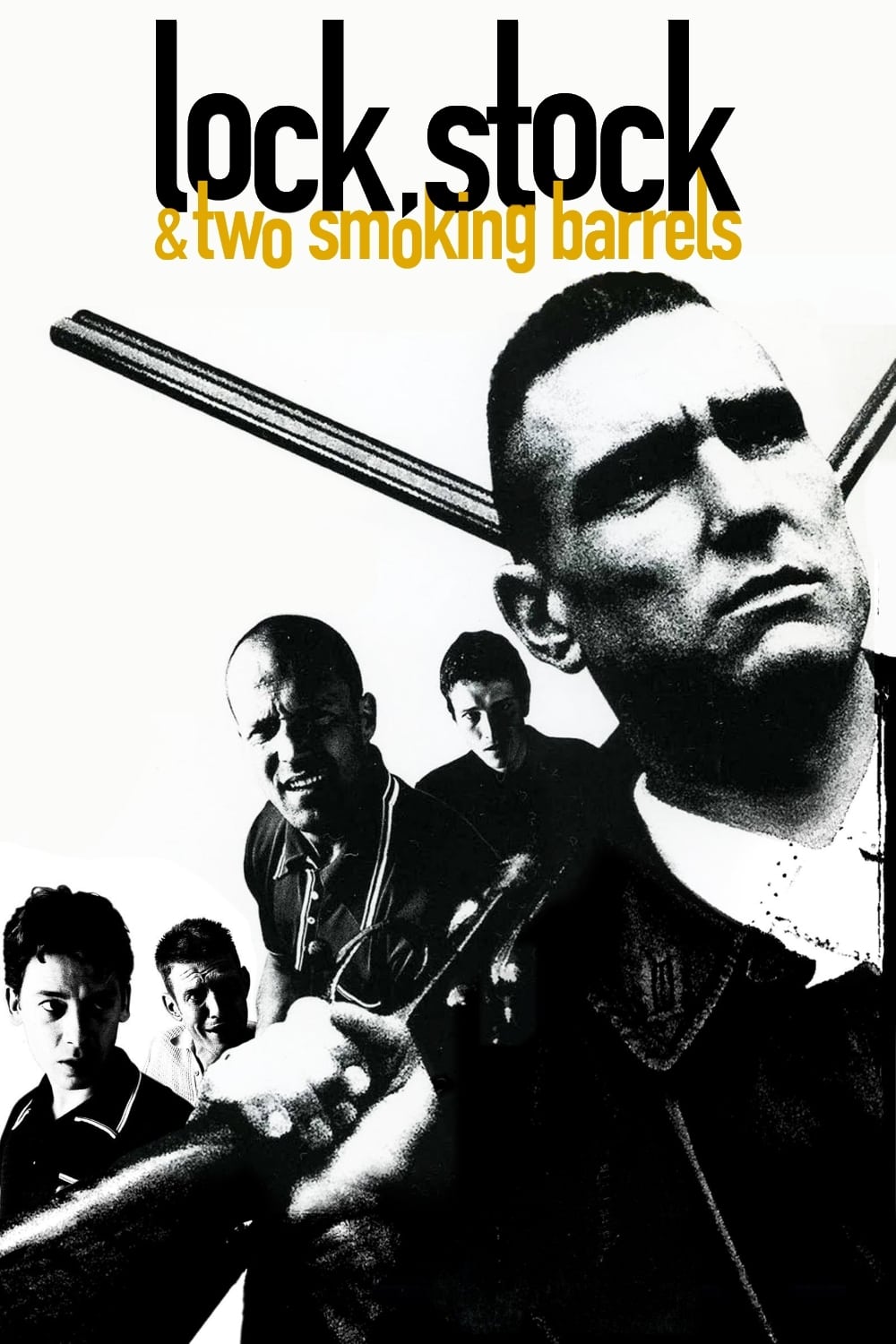
Lock, Stock and Two Smoking Barrels
1998 / 107m
Guy Ritchie’s debut feature Lock, Stock and Two Smoking Barrels is a fast-paced British crime comedy
that follows a group of friends who find themselves entangled in a dangerous web of gangsters, debt
collectors, and a botched card game. With its witty dialogue, sharp humor, and overlapping storylines,
the movie reinvigorated the British gangster genre and established Ritchie as a fresh voice in cinema. Its
gritty yet stylish depiction of London’s underworld was paired with an eclectic soundtrack featuring
James Brown, Ocean Colour Scene, Dusty Springfield, and The Stooges, which added swagger and
rhythm to the movie’s chaotic energy. The movie was a breakout success, winning international acclaim
and launching the careers of Jason Statham, Vinnie Jones, and Ritchie himself. Beyond its box office
impact, Lock, Stock helped shape the late-90s wave of British cinema, showing that independent movies
could be both commercially viable and wildly entertaining.